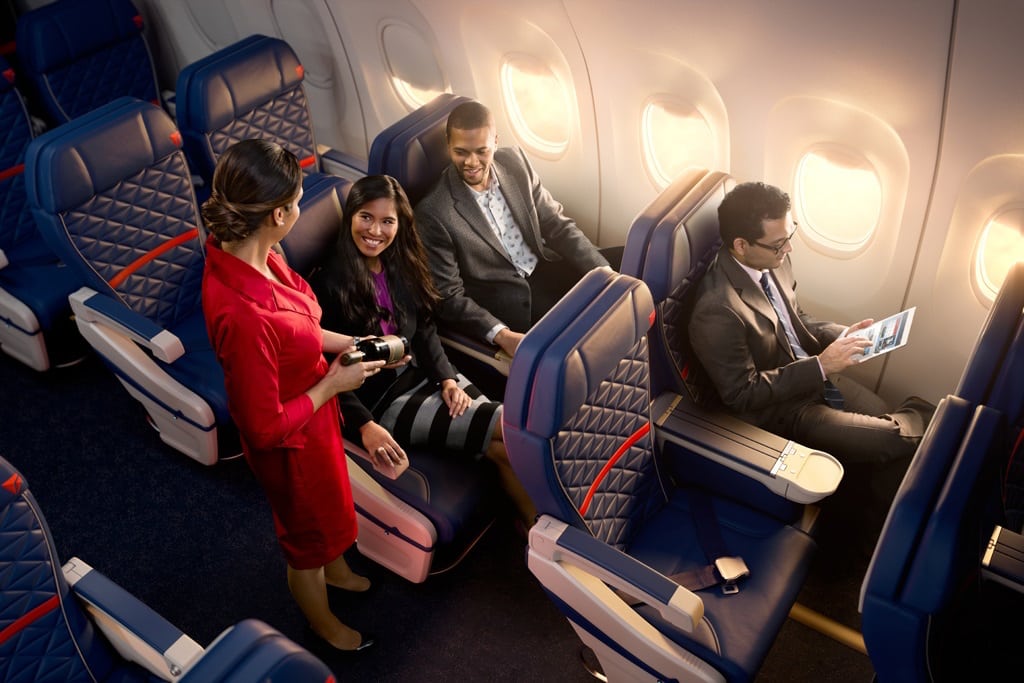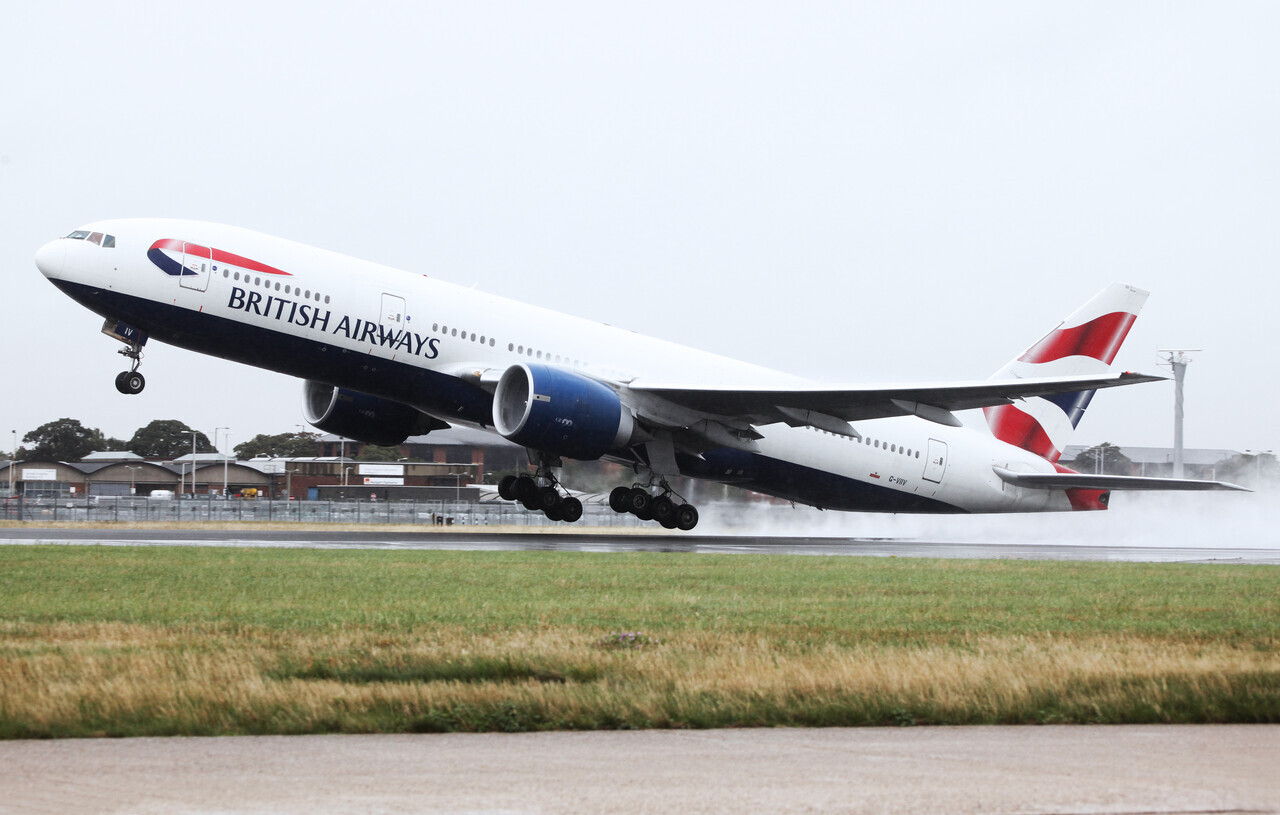The Tricky Business of Selling Alcohol on Planes

Skift Take
Once a month, and often more, we read about U.S. airline passengers who drink too much alcohol and act out. Sometimes, they start fights, or abuse other passengers. Or they try to open an emergency exit, scaring fellow passengers.
Does this mean it's time for airlines to stop serving booze?
It's a question Skift freelancer Micheline Maynard wondered about this week, writing, "Given that such incidents seem to happen on a monthly basis, generating unwanted publicity for the passengers and the airline, it’s easy to wonder: Would U.S. carriers ever consider flying dry?"
You probably know what she learned.
Despite recent high-profile incidents, like the drunken passenger who last December assaulted a flight attendant on a Southwest Airlines flight from Nashville to Tampa, U.S. carriers won't stop serving alcohol. Or, as a Southwest spokesman told Maynard, "How much would THAT flight suck?”
The easy answer is that this is about airline revenue, and Maynard notes booze is profitable. But while $7 is a lot for a beer, I’m not sure alcohol sales are a huge money maker, mostly because catering is expensive to offer and stuff tends to "disappear." Instead, I'd argue airlines offer booze for a simpler reason — because passengers like it.
A small percentage of passengers can't handle their liquor. But many of them are probably drunk before they board. Should airport bars stop serving booze too, or serve less of it? That's not as far-fetched as it seems, as Ryanair has asked airports to develop rules that limit how much passengers can drink. Or should customer service agents do a better job of keeping drunk passengers from boarding?
What do you think? Is this a problem that needs solving?
— Brian Sumers, Aviation Business Editor, [bss@skift.com, @briansumers]
Stories of the Week
Will Booze Ever Be Banned on U.S. Airline Flights? The consensus in this story is that airlines will keep selling and giving away alcohol because passengers expect it. But airlines could probably improve at making sure they don't carry intoxicated passengers.
Federal Auditor to Investigate FAA’s Safety Oversight of Southwest Airlines: The Department of Transportation's Inspector General has been busy recently, announcing several audits of the Federal Aviation Administration. Is there a problem at the FAA? Or is this mostly nothing? It's not clear. But now the inspector general will examine the FAA's relationship with Southwest Airlines.
Orlando Airport’s Facial Scanning Program Will Soon Cover All International Flights: Finally, U.S. Customs and Border Protection is getting closer to reaching its goal of scanning all international travelers. The agency wants to know when visitors enter and leave the country. This may sound creepy but it's not that rare. Other countries do it, too. It's probably a sign of the times.
Membership Airline Surf Air Faces $3.1 Million Lawsuit for ‘Unpaid Flight Services’: I'm old enough to remember when California-based all-you-can-jet airline Surf Air was a media darling. They were revolutionizing the industry with a Netflix model. You could fly up and down the coast as much as you wanted for one (somewhat reasonable) monthly fee. But the business has struggled, and at some point, it stopped operating its own airplanes, instead contracting with another provider. That provider is suing Surf Air.
Bombardier’s Renewed Focus on Regional Jets Is Paying Off: Had it had enough cash to see the program through, Bombardier might have made a huge profit off its C Series when airlines finally realized it was a good thing. But it's selling that program to Airbus because it couldn't make the numbers work. That is good for flyers on the manufacturer's CRJ regional jets. Bombardier is updating interiors on them, and Delta will be an early customer. They should feel more like a mainline aircraft.
United’s CEO Admits the Airline Had an Unhealthy Obsession With Rules: A few weeks ago, I flew to the IATA Annual General Meeting in Sydney, and United Airlines CEO Oscar Munoz was on my flight. We left late to wait for connecting passengers, and Munoz told me he agreed with the decision, even though most airlines are obsessed with the D:00 metric, or flights that leave exactly on time or early. Why? Munoz has been saying for a while the airline needs to be more caring, even if operational metrics suffer. In a recent speech covered by Quartz, Munoz said, "The answer can’t always be ‘no,’” adding, “We let rules and procedures get in the way of our people.”
Creepy or Cool?
For at least five years, we've asked the question about creepy versus cool when it comes to how airlines use technology to interact with customers.
Last week, Scott McCartney of The Wall Street Journal wrote a nice piece explaining the dilemma, noting some airlines don't give flight attendants as much information as they could. The airline doesn’t want to creep out passengers.
"United rolled out a new app to its flight attendants earlier this year with so much information about people, the airline has been reluctant to turn on all the functionality," he wrote. "The tool can show flight attendants information on each frequent flier’s five previous flights — green if it was a good flight, yellow or red if something went wrong, like a delay."
I'm sure this functionality is not perfect — United Chief Digital Officer Linda Jojo let me see my record a few weeks ago and it showed the airline had lost my bag recently, which is something that did not happen — but it still brings up intriguing questions. Is this drive for personalization good for passengers?
This is a topic I discussed on Friday with WGN Radio in Chicago. You can listen to my segment on WGN's website.
Programming Note
Are you wondering why we didn't cover a particular story this week?
There's good reason. This week is the fifth annual Skift retreat, a gathering of all Skift employees worldwide. We're in San Juan, Puerto Rico, taking a short break from the grind of the news business, and living the brand. Skift is a travel company, after all.
Curious about why the Skift retreat exists? CEO Rafat Ali wrote a piece on Medium last year explaining all.
KEEP IN TOUCH
Skift Aviation Business Editor Brian Sumers [bss@skift.com] curates the Skift Airline Innovation Report. Skift emails the newsletter every Wednesday. Have a story idea? Or a juicy news tip? Want to share a memo? Send him an email or tweet him.




